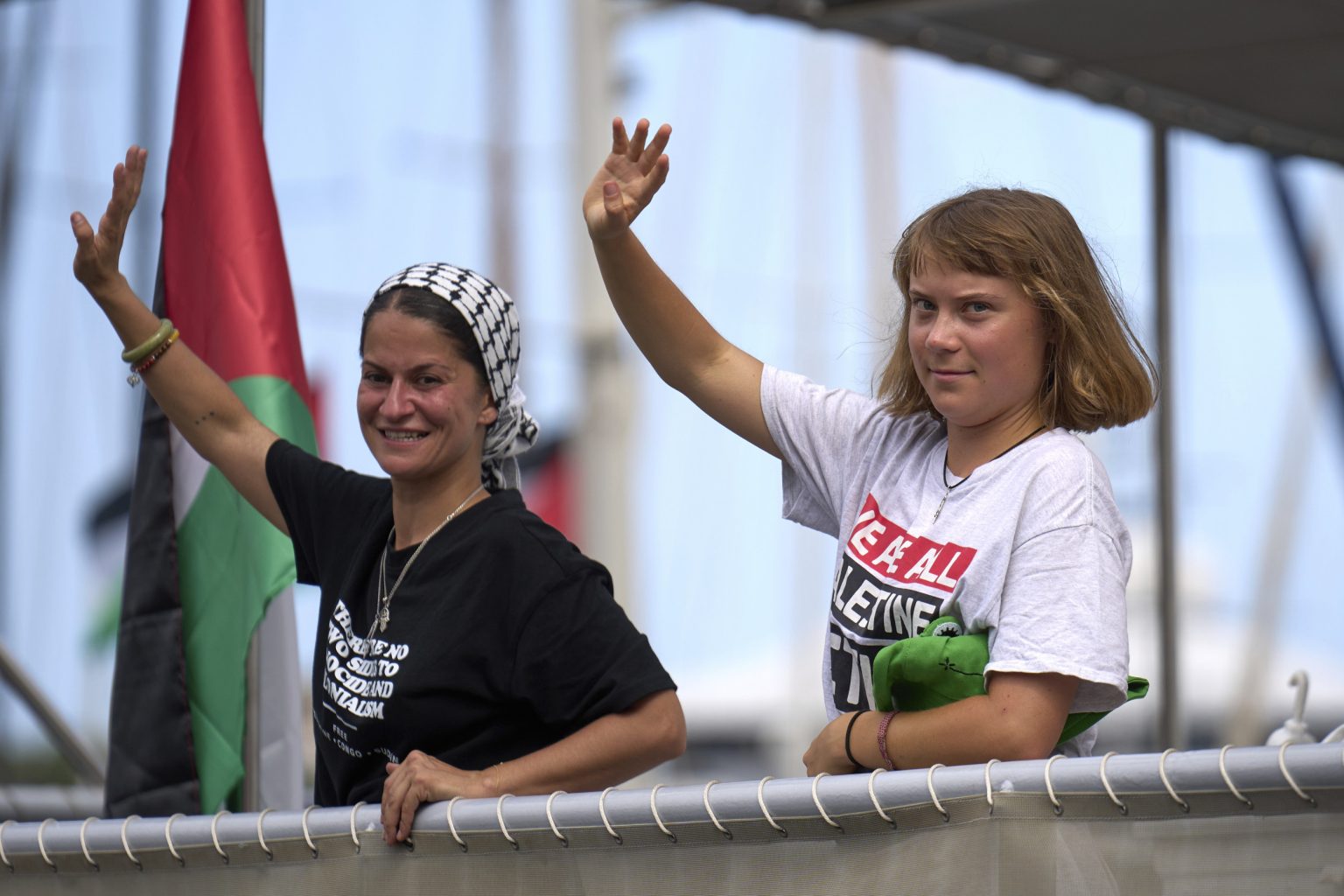Aid Boat Carrying Greta Thunberg Catches Fire in Tunisia Amid Conflicting Reports
In a dramatic incident that has sparked international attention, a boat carrying climate activist Greta Thunberg and other humanitarian workers caught fire Friday near Tunisia’s port of Sidi Bou Said. The vessel, known as the Family Boat, was part of the Global Sumud Flotilla (GSF) attempting to deliver humanitarian aid to Gaza. The circumstances surrounding the fire have quickly become contentious, with the activists and Tunisian authorities offering starkly different accounts of what transpired. The Portuguese-flagged vessel was carrying members of GSF’s steering committee when the fire broke out, though fortunately, all passengers and crew members escaped unharmed. This incident marks the latest challenge for international activists attempting to break Israel’s long-standing naval blockade of Gaza, which has been in place since Hamas took control of the enclave in 2007.
The GSF has made serious allegations in the aftermath of the fire, claiming in several Instagram posts that the boat was attacked by an Israeli drone. In one video, a GSF member named Yasmin stated unequivocally: “The Family Boat has been officially attacked. A drone came right above it, released a bomb and it exploded and the boat was on fire.” She further characterized the incident as “an attack against Gaza” designed to prevent aid from reaching the Palestinian territory. The group even shared footage on social media purporting to show “the exact moment the Family Boat was struck from above.” These allegations carry significant weight, as they suggest a potential violation of Tunisian sovereignty and an attack on international civilians engaged in humanitarian work. Many of the activists aboard, including Thunberg, were previously involved in a similar mission in June when their vessel, the Madleen, was intercepted by Israeli forces in international waters, resulting in their detention and subsequent deportation from Israel.
Tunisian authorities, however, have firmly rejected the GSF’s narrative. The interior ministry told Reuters that claims of a drone attack “have no basis in truth,” while officials informed Agence France-Presse that “no drones” had been detected in the area at the time of the incident. This contradiction creates a complex diplomatic situation that requires thorough investigation. The competing accounts leave critical questions unanswered about whether the fire resulted from an external attack or an internal malfunction. The United Nations’ Special Rapporteur on the occupied Palestinian territories, Francesca Albanese, acknowledged this uncertainty while noting to Reuters: “We do not know who carried out the attack, but we would not be surprised if it was Israel. If confirmed, it is an attack against Tunisian sovereignty.” Israel has not yet responded to the allegations, leaving their position on the matter unclear.
The humanitarian context of this incident cannot be overlooked. The Global Sumud Flotilla’s mission takes place against the backdrop of a dire humanitarian crisis in Gaza. Last month, the UN-backed Integrated Food Security Phase Classification officially declared that Gaza was facing famine, describing it as “entirely man-made” and driven by the ongoing Israeli military blockade and attacks during the nearly two-year war following Hamas’ October 7, 2023, attack on Israel. Israel has maintained that its naval blockade is necessary to prevent weapons from reaching Hamas, and Prime Minister Benjamin Netanyahu’s office has rejected the famine report as an “outright lie,” instead accusing Hamas of withholding existing aid as part of a “starvation campaign.” These conflicting narratives about Gaza’s humanitarian situation mirror the contradictory accounts of what happened to the Family Boat.
The incident highlights the significant risks faced by activists attempting to challenge Israel’s blockade of Gaza. In June, when Thunberg was aboard the Madleen, Israeli Defense Minister Israel Katz made Israel’s position clear on social media: “To the antisemitic Greta and her fellow Hamas-propaganda spokespeople, I say clearly: You should turn back—because you will not reach Gaza. Israel will act against any attempt to break the blockade or assist terrorist organizations—at sea, in the air, and on land.” This statement reflects the Israeli government’s view that such flotillas are not purely humanitarian missions but political actions that potentially aid Hamas. For their part, the activists see their work as a necessary response to a humanitarian crisis that international institutions have failed to adequately address, viewing the blockade itself as a form of collective punishment against Palestinian civilians.
As investigations proceed, determining the true cause of the fire will require independent forensic analysis of the available videos and a thorough technical inspection of the vessel. The GSF has stated it is investigating and will release results when available, while Tunisian authorities are similarly conducting their own inquiry. The outcome of these investigations could have significant diplomatic implications, particularly if evidence emerges supporting either narrative. If an external attack is confirmed, it would raise serious questions about military operations in Tunisian waters and the safety of humanitarian missions. Conversely, if the fire is determined to have an internal cause, it might lead to scrutiny of the flotilla’s safety protocols and preparedness. Either way, this incident underscores the continuing tensions surrounding Gaza’s isolation and the international community’s struggle to address the humanitarian crisis affecting its population. As the facts emerge, they will inevitably be interpreted through the lens of the broader Israeli-Palestinian conflict and the polarized global perspectives it engenders.















